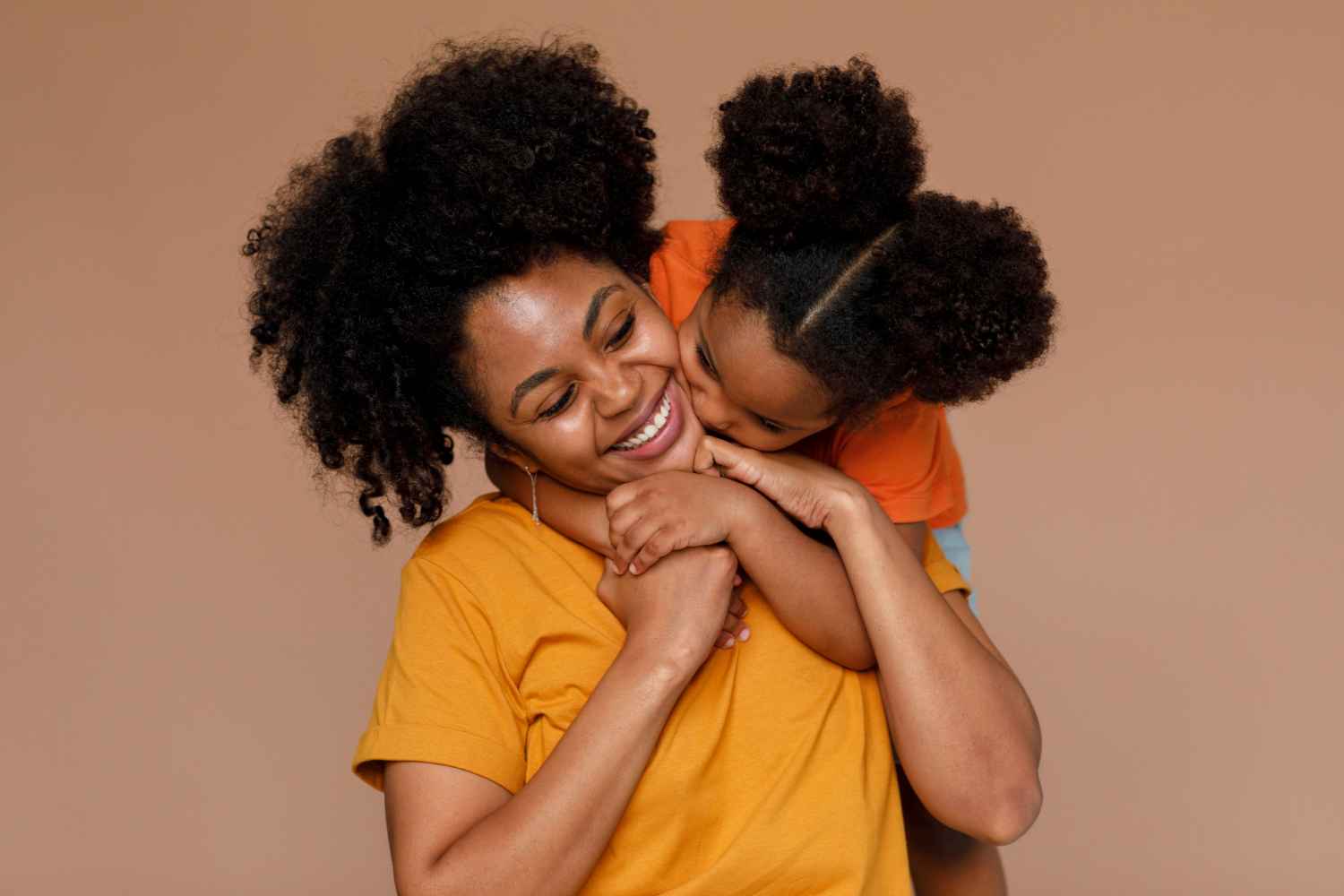Did you know that by the time your child turns 18, you'll have spent 90% of the total time you'll ever have with them? It's a sobering thought- and a reminder that the little everyday moments matter more than we realize.
Many parents assume that simply being around is enough to maintain a strong relationship with their child. But without intentional effort, that connection can fade,
leaving kids feeling unseen. Think about it—when was the last time your child shared something personal with you? Do they come to you when they’re struggling?
Do they light up when you walk into the room, or do they seem distant and withdrawn?
The good news is, strengthening your bond with your child doesn’t require dramatic changes. It’s the small, everyday habits that truly make a difference.
In this post, we’ll explore five simple but powerful habits that can help you build a closer, more trusting relationship with your child. Whether your child is still little or
already a teenager, these habits will help lay the foundation for a strong, lasting connection.
Habit 1: Be Fully Present
As parents, it’s easy to assume that simply being around our kids is enough. But if you really want to strengthen your relationship with them, you need to be present in
the moment, not just physically, but emotionally and mentally too. This means putting down your phone, turning off distractions, and really engaging with your child
when you’re together.
Being present also means listening—not just hearing what your child says, but truly understanding their thoughts and feelings. It might be a short chat after school about
how their day went, or even just noticing when they’re upset and offering a listening ear. These small moments of connection can make a huge impact, building trust and
a stronger bond over time.
Habit 2: Apologize and Admit Your Mistakes
As parents, we sometimes make mistakes, and it’s important to show our children that it’s okay to be imperfect. Apologizing and admitting when we’ve done something
wrong not only teaches humility but also helps model maturity and responsibility.
When you apologize to your child, do it sincerely. Instead of brushing off your mistakes or using excuses, acknowledge how your actions may have affected them. For
example, if you raise your voice in frustration, a simple, “I’m sorry for yelling. That wasn’t the right way to handle the situation,” shows that you understand your behavior
and are willing to make amends. This teaches your child the importance of taking ownership of their actions and repairing relationships.
By apologizing, you also teach your child that it’s okay to make mistakes—what matters is how we handle them. Encourage them to express when they feel hurt or upset,
and model how to apologize in return. It creates an atmosphere of openness where both parent and child can communicate honestly without fear of judgment.
Habit 3: Reading Together
Reading together isn’t just a way to improve literacy skills—it’s an opportunity to bond, learn, and explore new worlds together. Sharing a book with your child helps you
spend quality time while also introducing them to new ideas, perspectives, and emotions.
Start by reading books that match your child’s interests. If they love animals, pick a book about wildlife or nature. If they’re into adventure, choose an exciting tale about
exploration. As you read together, take the time to discuss the story, ask questions, and explore how the characters might feel or what they could have done differently.
These conversations help your child develop critical thinking skills while also deepening their emotional intelligence.
Reading also provides a chance for you to teach important lessons. Whether it’s about kindness, courage, or problem-solving, books can be a great vehicle for discussing
life’s big topics in a way that’s approachable and engaging.
Additionally, reading aloud and sharing stories creates a calming routine, especially before bed, helping your child unwind and connect with you in a relaxed setting. The
consistent act of reading together strengthens your relationship by creating shared memories and experiences that your child will treasure as they grow older.
Habit 4: Praying with/for Them
Praying with and for your child is one of the most meaningful habits you can establish. Beyond a spiritual practice, it’s a way to connect deeply, provide comfort, and
instill values that will stay with them for life. When you pray with your child, it shows them that they are supported and cared for in the most profound way possible. It’s
also a reminder that, regardless of what happens, they are never alone.
Praying together can be as simple as a short prayer before bed or before a big event like a test or sports game. It doesn’t have to be long or complicated—what matters
is the intention behind it. It’s also a wonderful opportunity to teach your child how to express gratitude, ask for help, and seek guidance.
When you pray for your child on your own, it’s an act of love and protection. It sends a powerful message that you’re thinking of them, even when they aren’t around.
These prayers can offer comfort when they’re feeling down, encouragement when they face challenges, and a sense of peace knowing someone is advocating for them.
Habit 5: Show Them Affection in their Love Language
Every child has a unique way of giving and receiving love, and recognizing and responding to your child’s love language helps them feel deeply understood and
connected to you.
If your child’s love language is words of affirmation, take the time to compliment them, encourage them, and express how proud you are of their efforts. A simple “I’m so
proud of how hard you worked on that project” can mean the world to them.
If they gravitate toward physical touch, give plenty of hugs, high-fives, and snuggles. Even when they're having a rough day, your comforting touch can help them feel
safe and loved.
For children who express love through acts of service, small gestures like packing their lunch or helping with their homework can speak volumes. These simple acts let
them know you care about their well-being and happiness.
If gifts are their primary love language, it’s not about expensive presents but the thoughtful things you do, like surprising them with their favorite snack or leaving them a
small note to brighten their day.
Lastly, for those whose love language is quality time, make sure you carve out moments to be fully present with them. Whether it's watching a movie together, playing a
game, or just sitting and talking, your undivided attention lets them know they are valued.
What to do Today
Building a strong relationship with your child takes time, effort, and consistency. But the reward is more than worth it.
Remember, it’s not about being perfect but about showing up and prioritizing the emotional connection. That’s what helps your child feel safe, loved, and supported.
So, start small and see what works for you and your family. The best relationships are built on the little things done consistently, and these habits will help you lay the
foundation for a strong, healthy, and loving relationship with your child.

